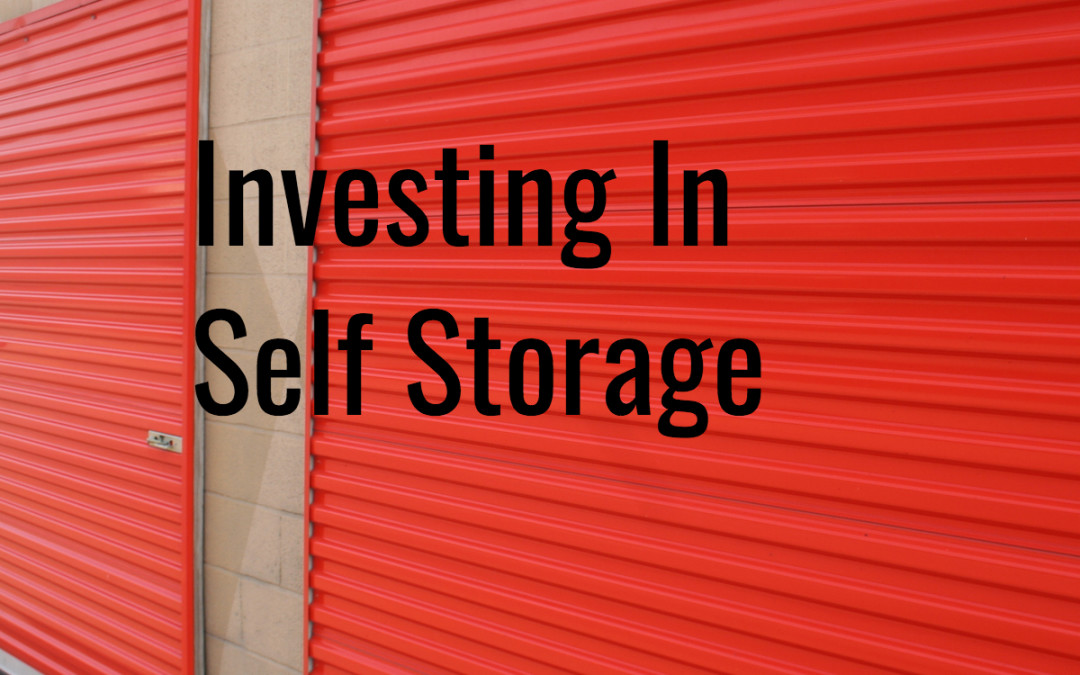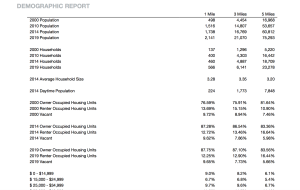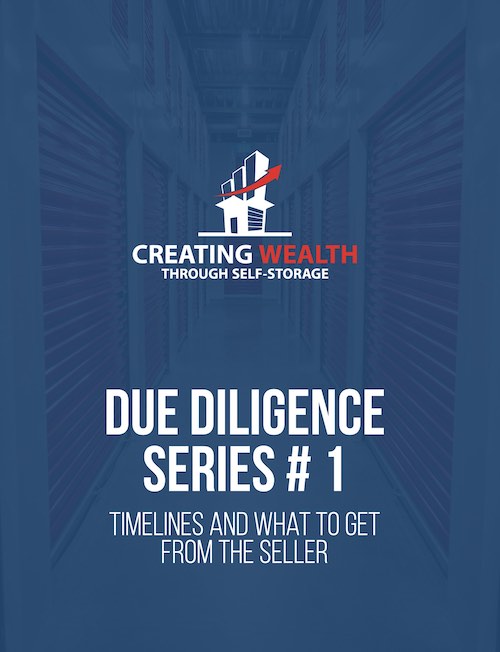Once you find a self storage deal that looks good to you as your start self storage investing, my coaching is to quickly jump into deal mode.
What is important as you enter deal mode is to know the steps, or more accurately said, the spaces of a deal.
As I have developed over the years as a Buyer of self storage, I have learned the hard way (i.e. lost deals) the importance of knowing exactly where I am and exactly what is involved in getting to the next step of a transaction.
Let me share that with you here.
The Spaces Of A Self Storage Transaction
The first space in “deal mode” is what I will call the preliminary analysis of the market and the facility.
The self storage market is evolving and changing. The heated self storage market over the last few years has made some of the larger cities hard for the small investor to get buy in.
There still can be deals in these markets, but we have to be very careful.
Also, in the last few years, there has been a lot of new self storage construction going on. If you are getting in the business today, as a Buyer, you have to be fairly sophisticated in analyzing if the market the opportunity is in. You need to know if that area is a healthy self storage market.
Ultimately, the feasibility report you are going to get (another space in deal mode we will discuss later in this series) will quantify it, but you need to do some preliminary work now to make sure your odds of tying up self storage facilities you don’t end up buying are lessened. This will also help in the long run with the relationships you are developing to bring you these deals (See last week’s Episode 129).
In the old days, how I would look at a market was very simple.
I would go to the neighboring self storage facilities, and if they looked full and were not doing a lot of discounting to get me in, the market was good enough for me. I know it would be quantified it in the feasibility report.
That worked well in most cases.
However, take my word for it, a lot of people are getting in to the business, and not everyone is doing the study and research you are.
Let’s discuss three ways to do a preliminary market study (I almost hate to use that word because what we are talking about and what a person doing a feasibility report are doing are vastly different).
Method One: Do It Yourself.
1. Get the demographics of the area where the facility you are considering or the land you are considering. Most, but not all of the time, the demographics are in the package. You may have to subscribe and pay for demographics (I do).
a. This is critical for understanding the “Demand” portion of the analysis. It is the people in this area for the most part, that will rent units in your facilities (for our company, it is about 86% on average live in a 3 to 5-mile range).
Demographics
2. This part’s a little harder. You will want to try and quantify how much self storage there is in the market area. You can start with the information in the same package. If there is no information, or there is no package, I suggest going to Google and map out the facilities they are showing in the area.
This is not always a complete list, but it is a good start.
Next you will have to try to estimate their size. This is the hardest part.
Sometimes their websites have the size. Sometimes the marketing package will have the size. In the worst case, I use Google Earth and look at them and try to measure how big they are. This is not always accurate, but I am trying to get a feel for the market, not be exact.
We are trying to get about how many square feet of self storage are already in the market area, and I usually at this level define market area as 4 to 5 miles’ radius of the site or facility I am looking at.
Then I just list the facilities with my estimate of square feet.
3. Next you take the population in the 5 mile radius (or whatever radius you are using as your market area) and multiply it times the average square feet per person in that area, that state, or if you can’t get any of that information, the US average (which changes but 7.3 is a safe number now).
a. These numbers are listed in the SSA and ISS storage almanacs and other publications.
b. On a project I did a couple of years ago, here was a sample.
5 –mile population = 59,840
59,840 x 7.33 = 438,627 square feet of potential demand
4. Then look and see if you think there are more square feet of supply or demand. This will give you a feel of the market supply/demand. The feasibility reports are always much better than mine, but at this stage I am just trying to get a sense of the market dynamics.
Method Two: Get an Area Report
If I am looking in a larger market, like Atlanta or Huston, there are a lot of reports you can purchase for $100 or so (last one I purchased was from the ISS on the Houston market from Colliers). It gave a snapshot of the market, average occupancy, rents etc.
This is not a supply/demand for the facilities market area, but it is a good start.
I am also now considering subscribing to a data provider that has exact storage data for much of the country. This is not cheep, but it can be tailored more to your projects market area. REIS and Yardi sell such services.
I hope to soon be able to supply you demand information in most locations in the US for a small fee. That way you won’t have to invest in these services and can pay only when you need one, and I can help recoup the cost outlay I have for this service. Let me know if you are interested in the comments below.
Method Three: Go To The Facilities.
Do what I said earlier, just go to each facility in your market area. Ask how they are doing. Sometimes I rent a unit so I can get in and walk around, look at doors see how many are vacant.
The reason we are doing this is to get a feel of what the Feasibility Report will say.
As the self storage buying market heated up over the last three to four years, more and more these reports are going to come back with low demand numbers. I just don’t want to put a lot of projects under contract to walk away, so I am putting more energy in the early states trying to get a sense of the market myself.
Just remember, this work does not replace a good feasibility report during the due diligence.
Analyze The Facility
The next space in preliminary deal mode is the Preliminary Analysis of the Facility.
I don’t want to go over that here because I have covered it in a lot of other Episodes and training programs.
I have put some of them on a download for this episode at
CreatingWealthThroughSelfStorage.com/130
So after you find a project that you think can work, you have dome some analysis of the area and market it is in, and your Preliminary financial analysis of the facility looks good, you are ready for the next step of “Deal Mode”…
That is to get control of the property.
We will discuss that in the next Episode.




